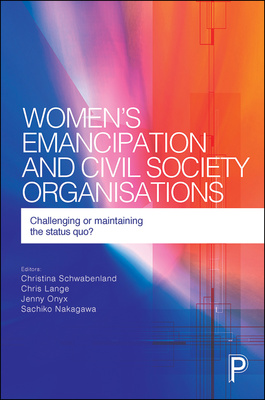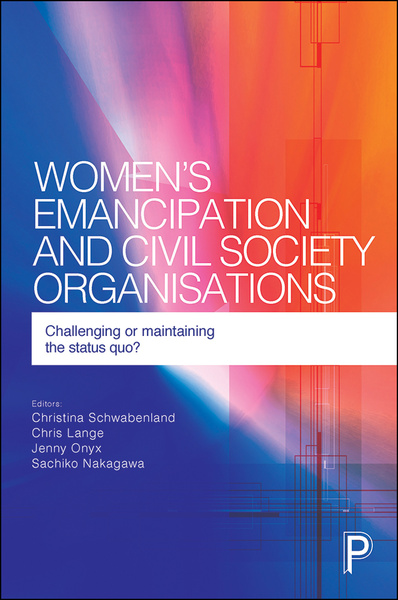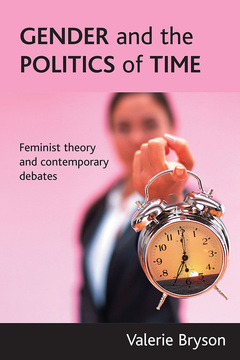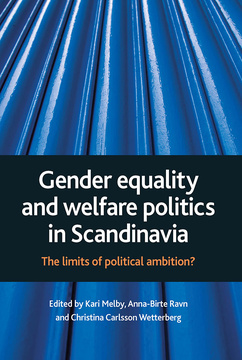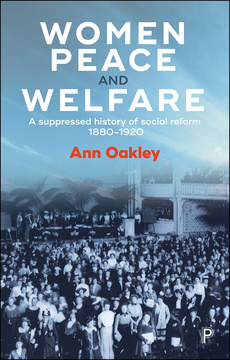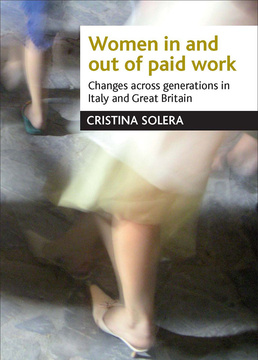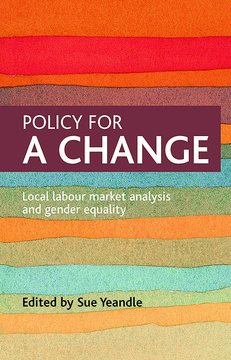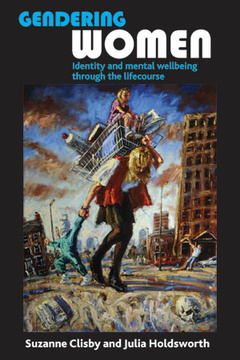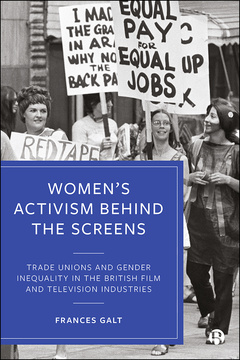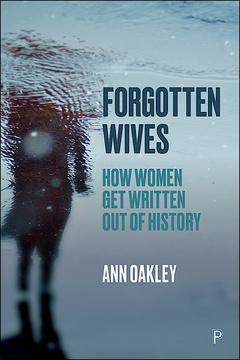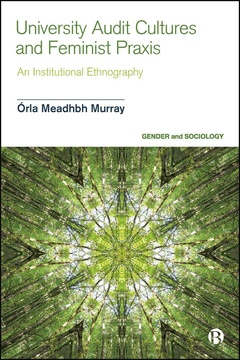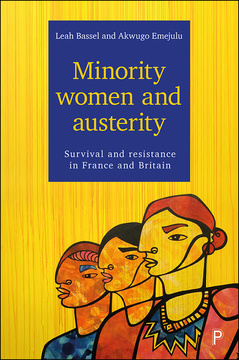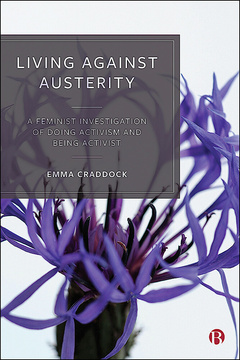Women's Emancipation and Civil Society Organisations
Challenging or Maintaining the Status Quo?
Edited by Christina Schwabenland, Chris Lange, Jenny Onyx and Sachiko Nakagawa
Published
Oct 4, 2017Page count
388 pagesISBN
978-1447324782Dimensions
234 x 156 mmImprint
Policy PressPublished
Oct 5, 2016Page count
388 pagesISBN
978-1447324775Dimensions
234 x 156 mmImprint
Policy PressPublished
Oct 5, 2016Page count
388 pagesISBN
978-1447324812Imprint
Policy PressPublished
Oct 5, 2016Page count
388 pagesISBN
978-1447324829Imprint
Policy PressPublished
Oct 5, 2016Page count
388 pagesISBN
978-1447324805Imprint
Policy PressAvailable Open Access under CC-BY-NC-ND licence
Women are at the heart of civil society organisations. Through them they have achieved many successes, challenged oppressive practices at a local and global level and have developed outstanding entrepreneurial activities. Yet Civil Service Organisation (CSO) research tends to ignore considerations of gender and the rich history of activist feminist organisations is rarely examined.
This collection examines the nexus between the emancipation of women, and their role(s) in these organisations. Featuring contrasting studies from a wide range of contributors from different parts of the world, it covers emerging issues such as the role of social media in organising, the significance of religion in many cultural contexts, activism in Eastern Europe and the impact of environmental degradation on women’s lives. Asking whether involvement in CSOs offers a potential source of emancipation for women or maintains the status quo, this anthology will also have an impact on policy and practice in relation to equal opportunities.
"This anthology is a testament to both women's activism and the idea that together women's CSOs across the world can make a collective difference." Voluntas
"An essential guide to research on civil society organisations and women's empowerment in a wide range of international contexts." Marjorie Mayo, Goldsmiths, University of London
"Rife with important insights for researchers and practitioners with emancipatory ambitions, and a wonderful example of the value of cross-fertilizing gender studies and research into civil society organizations." Charlotte Holgersson, KTH Royal Institute of Technology, Sweden
Christina Schwabenland is a Reader in Public and Voluntary Sector Management at the University of Bedfordshire. She has a doctorate in voluntary sector studies, has published two books on voluntary sector research and is currently researching diversity management in the voluntary sector and her work has been published in Human Relations, Organization and Culture and Organization.
Chris Lange is currently is engaged in nonprofit management and social work of a faith-based organisation in Beirut, Lebanon. She has a doctorate in political science from the Free University of Berlin, worked in Third Sector research as a freelancer and taught at the Alice Salomon-University of Applied Social Sciences in Berlin. She is co-founder of the Affinity Group of Gender of ISTR.
Jenny Onyx is Professor of Community Management in the Business School at the University Technology Sydney (UTS). She is Co-Director of Cosmopolitan Civil Societies research center, and former Editor of Third Sector Review. She is particularly concerned with issues of advocacy, social capital, volunteering and civil society and has published widely in these fields.
Sachiko Nakagawa researches social enterprise and social inclusion, focusing on work integration social enterprises (WISEs) for the disabled. She publishes many papers in international conferences, international journals and books edited by foreign researchers. She is an active member of International Society for Third Sector Research (ISTR), for which she was previously coordinator of the Affinity Group on Gender, and EMES European Research Network and is also a partner of the International Comparative Social Enterprise Models (ICSEM) project.
Introduction ~ Schwabenland, Christina Schwabenland; Chris Lange, Sachiko Nakagawa and Jennifer Onyx:
‘Empowerment’ as women’s emancipation? A global study in the influence of feminism in women’s NGOs ~ Ruth Phillips;
Section One
“Se non or quando?” (If not now, when ?) Birth, growth and challenges of a new voice within the feminist scenario in Italy ~ Elena Elia;
Street harassment activism in the 21st century ~ Rochelle Keyhane;
New gender-political impulses from Eastern Europe: the case of Pussy Riot ~ Eva Maria Hinterhuber and Gesine Fuchs;
How a feminist activist group builds its repertoire of actions: a case study ~ Fabien Hildwein;
From feminist extravagance to citizen demand: the movement for abortion legalization in Uruguay ~ Ines Pousadela;
Sustainability from the bottom up: Women as change agents in the Niger delta ~ Charisma Acey;
Section two: Emancipating organisation(s);
A Women’s NGO as an incubator: promoting identity-based associations in Nepalese civil society ~ Masako Tanaka;
Gender Democracy and Women’s Self Empowerment: A case of Somali diaspora civil society ~ Marco Tavanti, Cawo Abdi and Blaire MacHarg;
The role of civil society organisations in the emancipation of Portuguese Roma women ~ Raquel Rego;
Breaking down dichotomies in the narratives of women’s activism in Morocco ~ Aura Lounasmaa;
Working within associations: Recognition in the public space for women? ~ Annie Dussuet and Erica Flahault;
Flexible working practices in charities: supporting or hindering women’s emancipation in the workplace? ~ Sally East and Gareth Morgan;
Examining and contextualising the impact of Kenya’s Maendeleo ya Wanawake Organization Organization (MYWO) through an African feminist lens ~ Anne Namatsi Lutomia, Brenda Nyandiko Sanya and Dorothy Owino Rombo;
Conclusions: Organizing for emancipation/ emancipating organizations? ~ Christina Schwabenland; Chris Lange, Sachiko Nakagawa and Jennifer Onyx.







